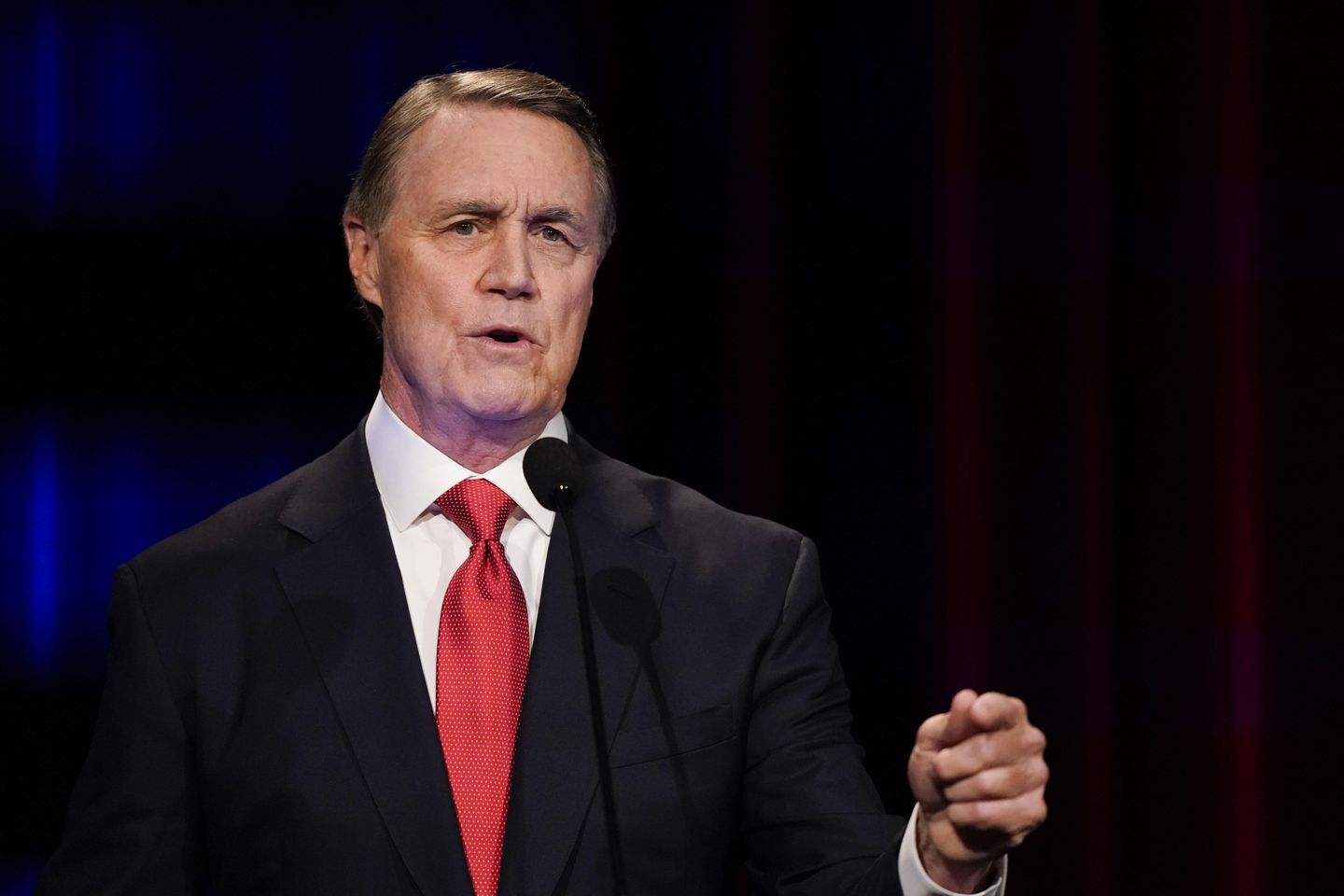President-elect Donald Trump made a significant announcement on Thursday, revealing his selection of former Sen. David Perdue to serve as the United States ambassador to China. This decision marks a pivotal moment in the incoming administration’s foreign policy approach and has sparked discussion and speculation among political analysts and experts.
Perdue, a seasoned politician with extensive experience in both business and government, is seen as a strategic choice for this crucial diplomatic post. As a former U.S. senator from Georgia and successful businessman, he brings a unique blend of political acumen and economic expertise to the role. His background in international trade and relations is expected to serve him well in navigating the complex dynamics of U.S.-China relations.
The announcement comes at a time of heightened tensions between the two global superpowers, with issues such as trade, human rights, and territorial disputes dominating the bilateral agenda. Trump’s decision to tap Perdue for this key diplomatic position is seen as a signal of his administration’s commitment to addressing these challenges head-on and pursuing a more assertive approach towards China.
Perdue’s nomination is subject to confirmation by the U.S. Senate, where he is expected to face scrutiny from lawmakers on both sides of the aisle. His confirmation process will likely involve questions about his views on key policy issues, his approach to diplomacy, and his plans for advancing U.S. interests in China. If confirmed, Perdue will be tasked with representing the United States in one of the most strategically important and complex diplomatic postings in the world.
In response to his nomination, Perdue expressed gratitude for the opportunity to serve as ambassador to China and pledged to work tirelessly to advance U.S. interests in the region. He emphasized the importance of maintaining a strong and principled stance towards China while also seeking opportunities for cooperation and dialogue. Perdue’s commitment to promoting American values and defending U.S. interests abroad is expected to be a central focus of his tenure as ambassador.
Perdue’s nomination has garnered mixed reactions from political observers and analysts. Some have praised his selection as a wise and strategic move by the incoming administration, citing his experience and expertise as valuable assets in navigating the complexities of U.S.-China relations. Others, however, have raised concerns about his lack of foreign policy experience and potential conflicts of interest stemming from his business dealings in China.
Regardless of the varying opinions on Perdue’s nomination, one thing is clear: his appointment as U.S. ambassador to China signals a new chapter in U.S. foreign policy towards the world’s second-largest economy. With tensions between the two countries rising and a range of critical issues on the agenda, Perdue will face a challenging and demanding role as he seeks to advance U.S. interests and promote stability in the region.
As he prepares to assume his new position, Perdue will need to hit the ground running and quickly familiarize himself with the intricacies of U.S.-China relations. Key issues such as trade negotiations, human rights concerns, and regional security dynamics will require his immediate attention and diplomatic skill. Perdue’s ability to build relationships, communicate effectively, and navigate the complexities of international diplomacy will be put to the test as he seeks to advance U.S. interests in China.
In addition to his diplomatic responsibilities, Perdue will also be tasked with representing the Trump administration’s policies and priorities in China. This will require him to strike a delicate balance between promoting U.S. interests and maintaining open lines of communication with Chinese officials. Perdue’s ability to effectively convey the administration’s positions and engage in constructive dialogue will be critical to his success in this role.
Perdue’s nomination comes at a time of significant global uncertainty and flux, with the United States facing a range of challenges and opportunities in its relationship with China. As the two countries grapple with issues such as trade, technology, and security, the role of the U.S. ambassador to China takes on added importance. Perdue’s appointment is a clear signal of the Trump administration’s commitment to engaging with China in a proactive and assertive manner.
In the coming months and years, Perdue will be at the forefront of U.S. efforts to shape the future of the U.S.-China relationship. His leadership, vision, and diplomatic skill will be put to the test as he works to advance American interests in a complex and rapidly evolving strategic environment. Perdue’s tenure as ambassador to China promises to be a challenging and demanding one, but his experience and expertise make him well-equipped to rise to the occasion and represent the United States effectively on the world stage.









